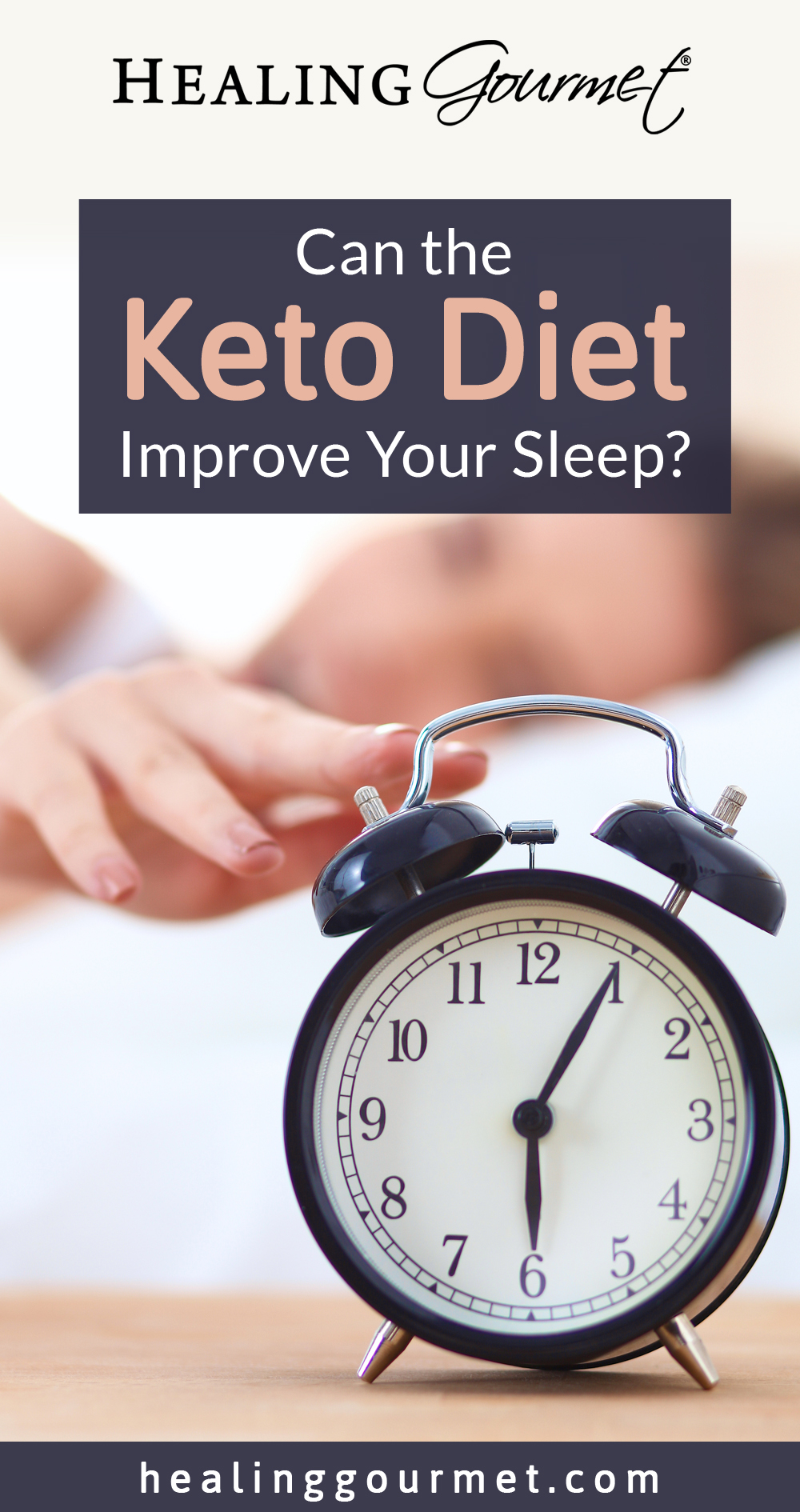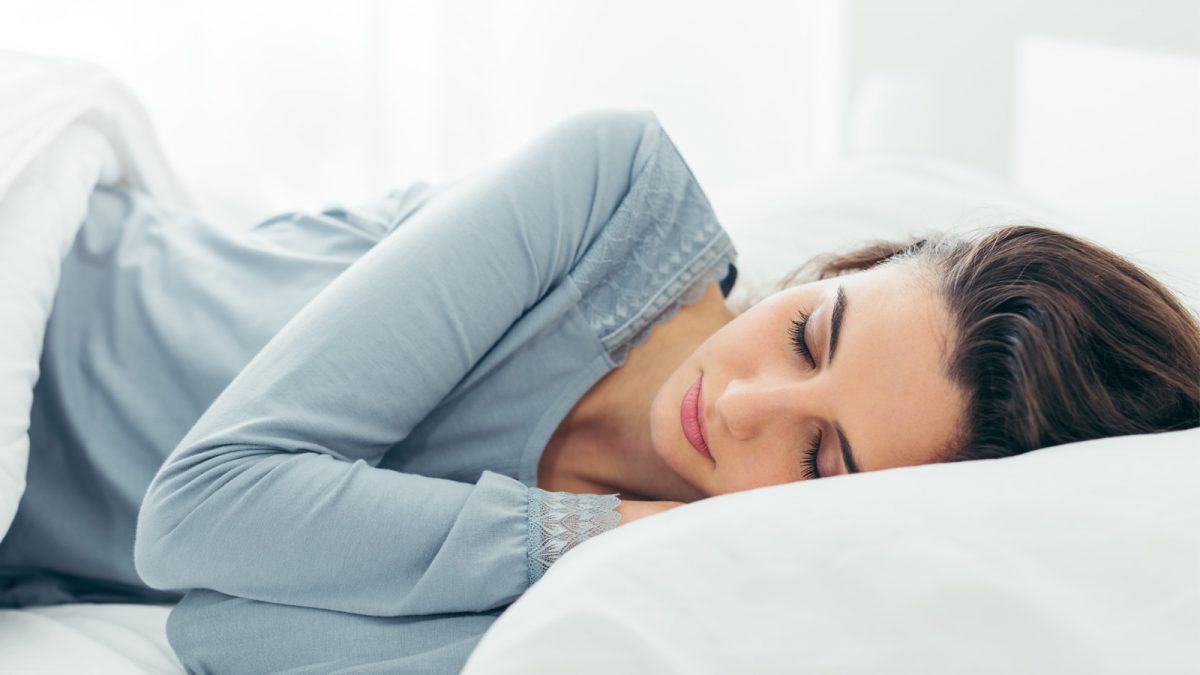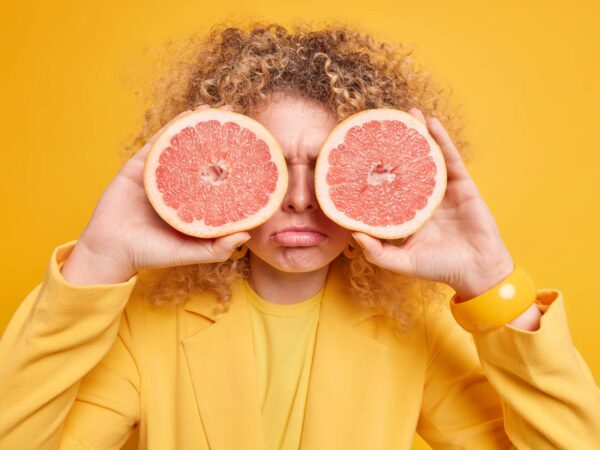Improve Your Sleep with the Keto Diet
Do you struggle with insomnia? If so, have you heard about the benefits of keto diet for sleep? In this article, we’ll talk about sleep health, ketogenic diet for better sleep, keto insomnia, and more. Let’s dive right in!
Each night millions of people in the US struggle to get a good night’s sleep. In fact, it is estimated that one in three people have brief symptoms of insomnia – with 10% of the population suffering from a chronic insomnia disorder, characterized by three nights of interrupted sleep per week for at least three months.
If you’ve ever struggled with insomnia, you know what a serious problem it can be.
Sleep loss increases your risk for depression and mood disturbances. It causes fatigue, poor memory and impaired focus. It reduces reaction time, leading to an increased risk of errors and accidents. It saps your motivation and energy. It promotes fat storage and weight gain. And it can even promote Alzheimer’s, high blood pressure and certain types of cancer.1
What’s more, insomnia promotes more rapid aging and degeneration at a cellular level – since it is in deep sleep that we repair and rebuild damaged cells.
Insomnia: Genetics and Environment
As a sufferer of insomnia myself, I know how much this disorder can take a toll on your health, happiness and quality of life.
Everything is a lot harder when you’re sleep deprived – whether it’s simply having the patience to help your child with their homework, the clarity of thought to do your job well, or the energy and stamina to exercise – insomnia can steal a lot of zest, productivity and peace from your life.
Like most desperate insomnia sufferers, I’ve tried just about everything to get a good night’s sleep. Going to bed at the same time each night and engaging in all of the suggested “sleep hygiene” techniques. A hot bath with magnesium, blue light blocking glasses after dark, an eye mask, soft socks, black-out curtains and the room dialed to the perfect temperature – and just about every natural supplement imaginable.
And like clockwork, I’d wake up after four or five hours of sleep, often unable to drift back to slumber.
Like most ailments, insomnia is a product of genetics and environment. In fact, estimates from twin studies show that insomnia is around 50% genetic, affecting more females more than males. This genetic predisposition coupled with environmental factors creates a susceptibility to insomnia.2
What’s more, most genetic influence is on the type of insomnia where people have a hard time staying asleep, rather than difficulty falling asleep.3
While we can’t change the genetic predispositions we have, we can work with them to create a better outcome.
And like most issues involving our health the primary way we can do this is through diet…
Diet and Insomnia: What and When You Eat Matters
When it comes to the “environmental” piece of the insomnia puzzle, what you eat and when you eat can have a big impact on your sleep cycle.
The composition and timing of our meals impacts our circadian rhythms, microbiome, hormones and other biochemicals that impact the sleep-wake cycle.4
As it relates to timing of eating, studies show that eating in the evening hours may cause disruptions in healthy sleep patterns. And again, women seem to be especially vulnerable to these food-related disruptions in slumber.5,6
While more research is needed, restricting your eating to daylight hours is the pattern most-likely followed by our ancestors… and the one most biologically appropriate to produce a healthy sleep pattern.
Now let’s take a look at some of the dietary compounds that influence sleep…
Histamines & Overactive Mast Cells: Little-Known Causes of Sleep Disturbance
It may come as a surprise that even “healthy” foods – like sauerkraut, kefir, tomatoes and cured meats – can impair sleep for some people, due to their high levels of histamines.
Histamines influence a special type of immune cell called mast cells, which can activate in the early morning hours and promote wakefulness.7 This is one reason antihistamines (like Benadryl) are marketed as sleep aids – they can help you stay asleep by reducing mast cell activity.8
Of course, antihistamines are not a healthy long-term solution for promoting sleep. Their regular use has been linked to memory loss and dementia, among other maladies.9
While lower-histamine foods and mast-cell stabilizing supplements (like quercetin, vitamin C, bromelain and nettles) can help, recent research shows the keto diet may help to address the issue at its root.
A study published in Nutrition and Metabolism found that found that ketones have a powerful effect on stabilizing overactive mast cells, which contribute to allergic reactions and insomnia.10
What’s more, when your mast cells become dysregulated and overactive, sleep deprivation increases their overactivity. This compounds the problem and creates a vicious cycle.11 If you’ve ever been on the horrible ride of an “insomnia bender”, you know this draining cycle all too well!
Hacking Adenosine for Deeper, More Restorative Sleep
Another chemical that impacts sleep is adenosine. You might recognize this chemical as part of adenosine triphosphate (ATP) – the “energy currency” of life.
It turns out that adenosine is not only important for producing energy as part of ATP. It is also vital for sleep regulation, as adenosine forms a unique link between cellular energy and neuron activity, impacting the quality of our sleep.12
Dr. Michael Breus, Ph.D., a clinical psychologist with a specialty in sleep disorders, says:
“Adenosine builds up in the body throughout the day and contributes to our feeling increasingly less alert and wakeful as the day goes on, eventually helping to promote deeper slow-wave sleep at night. Studies show a ketogenic diet promotes adenosine activity in the body, helping to relax the nervous system, as well as reducing pain and inflammation — all of which can help improve sleep.”
Balance Blood Sugar and Cortisol to Promote Better Sleep
We’ve long known that not sleeping enough can reduce insulin sensitivity and increase hunger– promoting weight gain and setting the stage for diabetes and other chronic disease.13,14
It seems that the association goes the other way too. High blood sugar and insulin spikes also impact the sleep cycle and boost the stress hormone, cortisol.15
But when you are in ketosis consistently, cortisol levels decrease. This is because you are using ketones and fat for fuel, and have greater ability to spare your body’s sugar stores (glycogen).
Due to this metabolic switch, you don’t require as much cortisol to promote an increase in blood sugar that your body uses for energy. For those whose insomnia is driven by cortisol, the ketogenic diet may help overall cortisol levels to level out, therefore preventing the hormonal surges that keep you from falling – or staying – asleep.
Sleep More Soundly and Feel More Energetic During the Day
Of course, having balanced blood sugar – instead of blood sugar spikes and crashes – will naturally help you feel more energetic during the day.
A study published in the journal, Nutrients, found that a very low-calorie keto diet significantly reduced daytime sleepiness in a group of obese patients.
Another study, published in Epilepsia, found that children with epilepsy who followed a keto diet slept better, experienced a higher proportion of REM sleep, and felt less sleepy during the day — all of which improved their overall quality of life.16
Recommended: Just One Drink a Day Replaces Diabetes Meds
Keto Insomnia Warning: It May Get Worse Before It Gets Better
Interestingly, if you want the benefits of the keto diet for sleep, you may need to be willing to accept some “keto insomnia” when first acclimating to the diet.
In fact, many people report a worsening of sleep patterns before improvement, a.k.a. keto insomnia, as the body makes the metabolic switch from “sugar-burner” to “fat-burner”. This seems to be due to an increase in the stress hormone cortisol as the body adapts to burning fat for fuel. Once the body adapts, overall cortisol levels decrease.17
A study from the Medical University of South Carolina (MUSC) followed six morbidly obese teens who spent four months on a keto diet. While all showed lower levels of REM sleep (dreaming sleep) and excessive slow-wave (deep) sleep at the beginning of the experiment (indicating worse sleep), the reverse was true at the end of the study.18
Of course, there are other hormones and chemicals relating to sleep quality and duration (such as melatonin, serotonin, GABA, tryptophan, etc.), and certain compounds like caffeine and alcohol that can impair sleep. Stress levels, light exposure in your eyes and seasonal changes can also impact your sleep duration and quality.
For me, a low-histamine ketogenic diet has been a tremendous help for my night waking. I find that when I am following a ketogenic diet, I sleep without interruption, dream more and wake up feeling refreshed.
Do you struggle with insomnia? If so, have you tried the keto diet, and have you found it to be helpful?





I followed a KETO diet very faithfully for a month or so. I don’t have a gallbladder. In short, my liver enzymes got TOTALLY messed up and it has taken me months to get them back into the normal range. What am I to do? I want to lose about 10 pounds and I want to sleep soundly but I sure don’t want my liver messed up.
Hi Sharelyn,
Thank you for your question.
There are a few things that may help people who do not have a gallbladder adjust to a keto diet. These include:
– Supplementing with ox bile
– Consuming ginger tea or capsules with meals
– Taking electrolyte supplement with potassium, magnesium and calcium.
Many people find they adjust to the increase in fat in about a month.
Of course, these are simply general fat-digesting tips, not medical advice. Please speak with your doctor about any changes you make to your diet.
Be Well,
Kelley